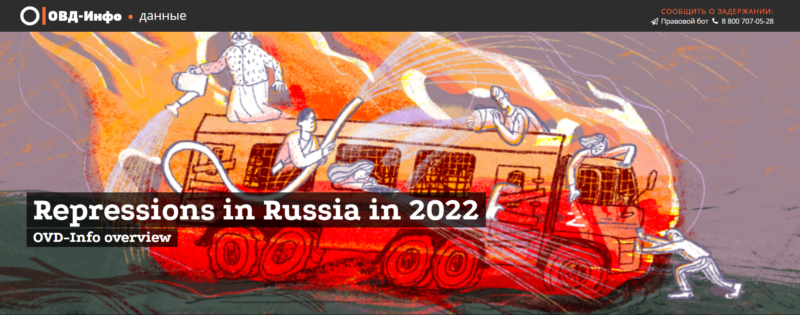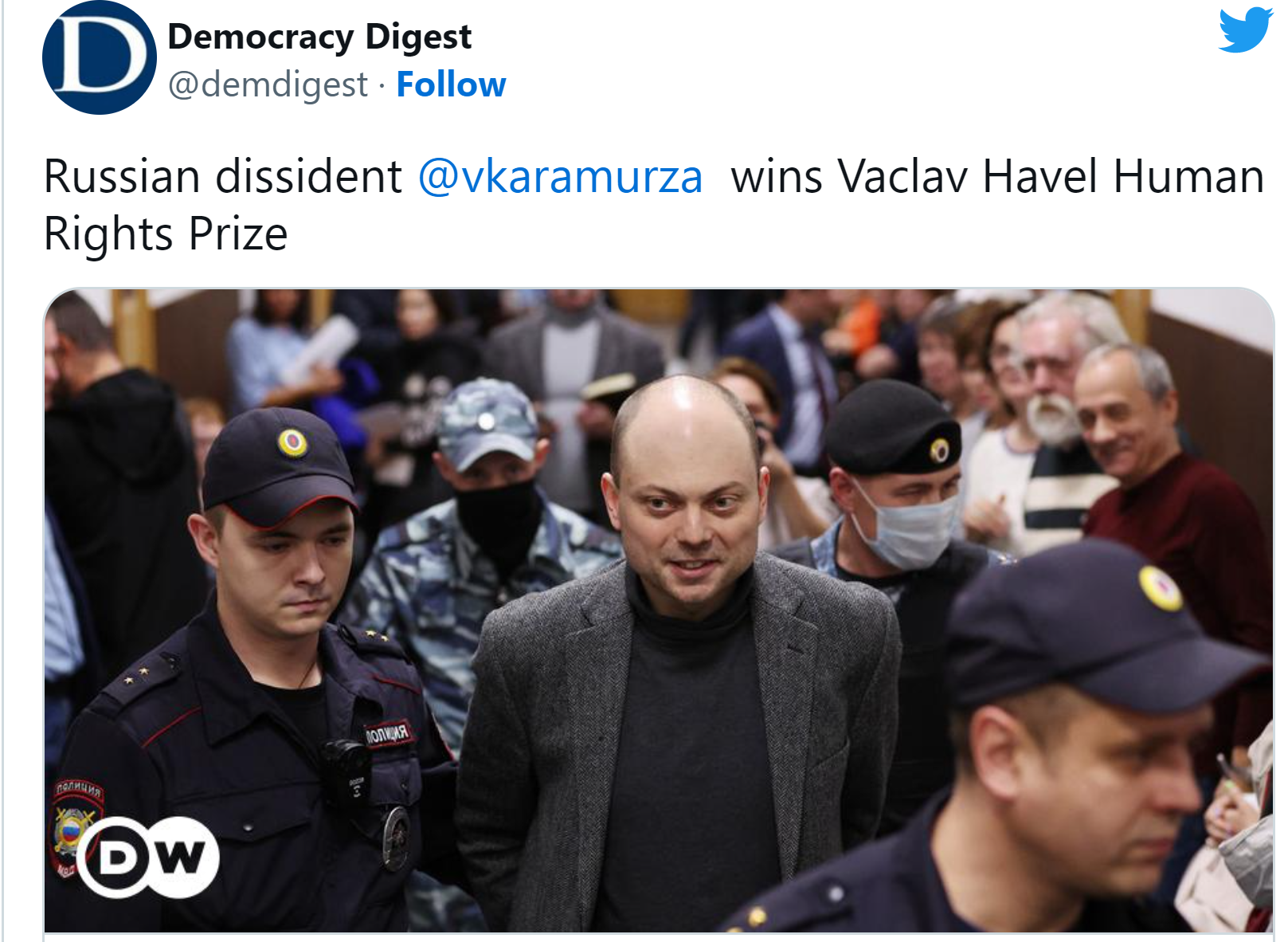Britain on Friday sanctioned a Russian judge and four others linked to the arrest and alleged poisonings of Kremlin critic Vladimir Kara-Murza who was jailed for 25 years this week for treason and other offences, Reuters reports.
Yan Rachinsky, the chair of Memorial, a human-rights group that was recently outlawed, described the length of the sentence as Stalinist. Mr Kara-Murza himself expressed surprise at how far the trial went beyond the norms of late Soviet dissident trials. “Things like this might have been present in the 1930s, not the 1970s,” he said, The Economist adds:
Repression should be understood as a form of communication between the state and its subjects, suggests Grigory Okhotin, the founder of OVD-Info, a legal-support network for the victims of police violence. “It’s like an invisible hand,” he says. It is felt more strongly when people start to push the boundaries of what is allowed. The authorities “move when people start to fear less. Demonstrative sentences are a sign of failure, of losing control.”

Credit: OVD-Info
The lawyer who defended Kara-Murza fled Russia after receiving warnings that he, too, could be jailed, he told The Moscow Times:
Vadim Prokhorov has defended a string of prominent Kremlin critics in court over the years, including Kara-Murza, Ilya Yashin and Boris Nemtsov, who was assassinated in 2015.
“It was always clear that the Russian authorities were not pleased with me,” Prokhorov said in a phone interview from Washington. “But everything escalated with the Vladimir [Kara-Murza] case.”
 The mind-boggling 25-year sentence handed down in a Moscow court is a horrifying landmark in the escalation of political repression in Russia over the past year, notes analyst Cathy Young.
The mind-boggling 25-year sentence handed down in a Moscow court is a horrifying landmark in the escalation of political repression in Russia over the past year, notes analyst Cathy Young.
Russians are ready for Freedom, Kara-Murza told the Oslo Freedom Forum (below). He may be in a Russian prison; but Putin is, in a very real sense, a prisoner of his own war and his own dictatorship, she writes for The Bulwark.
“His cause is just. He will be free. Russia will be free,” the National Endowment for Democracy’s Damon Wilson tweeted. “And the world will never forget his steadfast principled stand and determination.”
The Free Russia Foundation, George W. Bush Institute, Global Magnitsky Justice Campaign, Human Rights First, McCain Institute, National Endowment for Democracy, Raoul Wallenberg Center for Human Rights, and the Reagan Institute have been working to advocate for Kara-Murza’s release and accountability for those involved in his persecution.
At a recent event (above), they convened experts, activists, and policymakers to discuss Kara-Murza’s current detention, mechanisms for his release, and the prospects for a free and democratic Russia.
“Two decades fighting Putin’s regime, two poisonings and now this,” said Evgenia Kara-Murza. “I am at a loss of words, yet words are my only weapons.”
You can write a letter to Vladimir Kara-Murza @vkaramurza in English and submit it through this amazing service launched by @ovdinfo_en that will translate it into Russian (as required by Russian law) and make sure it reaches Vladimir. Thank you @OvdInfo !!! https://t.co/b024PsSjmV
— Evgenia Kara-Murza (@ekaramurza) April 21, 2023







